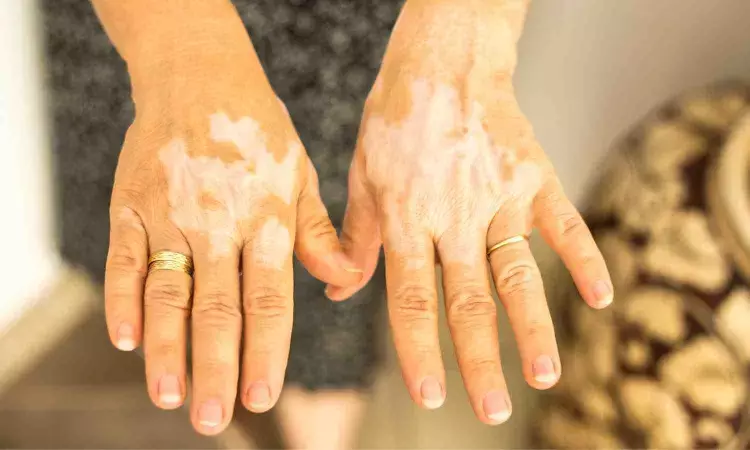- Home
- Medical news & Guidelines
- Anesthesiology
- Cardiology and CTVS
- Critical Care
- Dentistry
- Dermatology
- Diabetes and Endocrinology
- ENT
- Gastroenterology
- Medicine
- Nephrology
- Neurology
- Obstretics-Gynaecology
- Oncology
- Ophthalmology
- Orthopaedics
- Pediatrics-Neonatology
- Psychiatry
- Pulmonology
- Radiology
- Surgery
- Urology
- Laboratory Medicine
- Diet
- Nursing
- Paramedical
- Physiotherapy
- Health news
- Fact Check
- Bone Health Fact Check
- Brain Health Fact Check
- Cancer Related Fact Check
- Child Care Fact Check
- Dental and oral health fact check
- Diabetes and metabolic health fact check
- Diet and Nutrition Fact Check
- Eye and ENT Care Fact Check
- Fitness fact check
- Gut health fact check
- Heart health fact check
- Kidney health fact check
- Medical education fact check
- Men's health fact check
- Respiratory fact check
- Skin and hair care fact check
- Vaccine and Immunization fact check
- Women's health fact check
- AYUSH
- State News
- Andaman and Nicobar Islands
- Andhra Pradesh
- Arunachal Pradesh
- Assam
- Bihar
- Chandigarh
- Chattisgarh
- Dadra and Nagar Haveli
- Daman and Diu
- Delhi
- Goa
- Gujarat
- Haryana
- Himachal Pradesh
- Jammu & Kashmir
- Jharkhand
- Karnataka
- Kerala
- Ladakh
- Lakshadweep
- Madhya Pradesh
- Maharashtra
- Manipur
- Meghalaya
- Mizoram
- Nagaland
- Odisha
- Puducherry
- Punjab
- Rajasthan
- Sikkim
- Tamil Nadu
- Telangana
- Tripura
- Uttar Pradesh
- Uttrakhand
- West Bengal
- Medical Education
- Industry
Oral Tofacitinib arrests vitiligo progression and induces repigmentation when combined with phototherapy: Study

Vitiligo is a chronic autoimmune disease that results from the loss of melanocytes, leading to disfiguring skin lesions. This skin condition causes anxiety and depression, and treatment aims to halt the disease progression, and repigment affected areas. Topical medications and NB-UVB phototherapy are typically used, but in some cases, these treatments may not be effective. Systemic glucocorticoid treatment may help, but these have potential side effects. Other systemic treatments, such as methotrexate, minocycline, ciclosporin, and JAK inhibitors, may also be used as monotherapy or adjunctive therapy.
A recent study published in Dermatologic Therapy concluded that Tofacitinib could be a new treatment option for progressive vitiligo patients non-responsive to traditional treatment, as it may halt progression and promote repigmentation when combined with phototherapy.
JAK inhibitor has demonstrated therapeutic efficacy on vitiligo, but more data for vitiligo progression needs to be available as data in this context remain scarce.
This retrospective study evaluated the efficacy and safety of oral Tofacitinib in 25 refractory progressive vitiligo patients. These patients reported failure to previous steroid treatments.
Key findings from the study are:
- 16/25 patients, constituting 64%, noted stopping disease progression.
- Nearly half of the 16 cases halted progression within one month.
- 40% (n=10) of patients had repigmentation in varying degrees.
- Combination with phototherapy affected the repigmentation rate.
Oral Tofacitinib might be a potentially effective treatment for intractable progressive vitiligo.
A comparison of Tofacitinib with other systemic treatments, such as oral corticosteroids or methotrexate, would have been more beneficial. They said we anticipate future high-quality studies providing high-level evidence treating vitiligo cases with JAK inhibitors.
Study limitations include retrospective study design, single-centre study and small sample size.
Reference:
Sun, X., Sheng, A., & Xu, A. (2024). Tofacitinib for the Treatment of Refractory Progressive Vitiligo: A Retrospective Case series. Dermatologic Therapy, 2024, 1–5. https://doi.org/10.1155/2024/9944826
BDS, MDS in Periodontics and Implantology
Dr. Aditi Yadav is a BDS, MDS in Periodontics and Implantology. She has a clinical experience of 5 years as a laser dental surgeon. She also has a Diploma in clinical research and pharmacovigilance and is a Certified data scientist. She is currently working as a content developer in e-health services. Dr. Yadav has a keen interest in Medical Journalism and is actively involved in Medical Research writing.
Dr Kamal Kant Kohli-MBBS, DTCD- a chest specialist with more than 30 years of practice and a flair for writing clinical articles, Dr Kamal Kant Kohli joined Medical Dialogues as a Chief Editor of Medical News. Besides writing articles, as an editor, he proofreads and verifies all the medical content published on Medical Dialogues including those coming from journals, studies,medical conferences,guidelines etc. Email: drkohli@medicaldialogues.in. Contact no. 011-43720751


